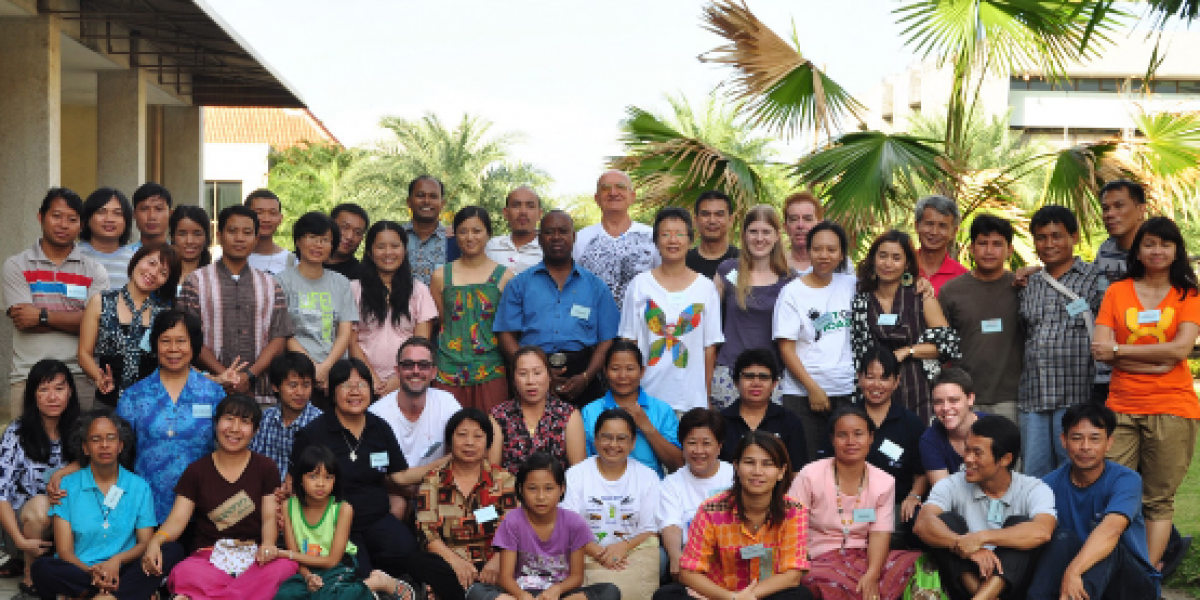Thailand: JRS Thailand’s annual meeting focuses on creating self-sufficiency and independence
09 May 2011|Oliver White

“Instead of handing out food or financial assistance, we are trying to build the capacity of refugee support networks to enable refugees to help each other.”
said Jennifer Titmuss, Mae Sot project director.
Bangkok, 09 May 2011 – JRS Thailand met this May for their annual meeting, where the 54-strong team reflected on the year’s work. Staff members spoke about changes made to projects over the course of the year and what new ideas were going to be implemented in 2011.
The meeting in Hua Hin, Thailand, brought together members from eight projects in the country, many who have been here since the last meeting in 2009. JRS staff spent a portion of the meeting exploring ways to strengthen their teams, improve communication and share information.
“It is only once a year that all JRS staff come and meet together. It’s nice to meet with all new and old staff and nice to spend time together, said Sermisiri, coordinator for the Ban Landmines and Cluster Munitions project.
When asked to reflect on their work, Rosalyn, vocational training and non-formal education officer in the Mae Hong Son project, wrote about the dangers of providing too much in the refugee camps.
“We have to be careful not to create dependency,” she said after noting that JRS Mae Hong Son is cutting support for the babysitter program for teachers in the camp.
This issue remained at the forefront during the week. The JRS Mae Sot project was singled out for working actively to promote self-sufficiency and independence. Since the last annual meeting, this project on the northern Thai Burma border has been revamped, allowing refugees to start livelihood projects (like a shop or a small farm) with the help of JRS, but take complete ownership of it rather quickly.
“Many things have changed since the last meeting,” said Jennifer Titmuss, Mae Sot project director. “Instead of handing out food or financial assistance, we are trying to build the capacity of refugee support networks to enable refugees to help each other.”
This sentiment echoed the directive of Jesuit Superior General Adolfo Nicholas in his statement to JRS on its 30th anniversary.“In our service to refugees, I ask how JRS can better build participatory communities. The long tradition of depending on help of others might hinder those we serve from taking responsibility for their own needs,” he said in a letter that JRS Thailand studied at the meeting.
The staff left the meeting with the challenge to build communities with refugees and ultimately be able to leave rather than building dependence.

